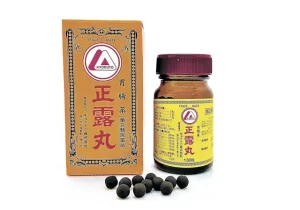mRNA drugs for tumor and rare disease treatment
- Gut Bacteria Enzymes Offer Hope for ABO Universal Blood Transfusions
- Well-Known Japanese Medicine Exposed for 30 Years of Data Falsification
- Oregon Reverses Course: From Decriminalization to Recriminalization of Drug Possession
- Why Lecanemab’s Adoption Faces an Uphill Battle in US?
- Yogurt and High LDL Cholesterol: Can You Still Enjoy It?
- WHO Releases Global Influenza Vaccine Market Study in 2024
mRNA drugs for tumor and rare disease treatment
mRNA drugs for tumor and rare disease treatment. What are the mRNA drugs used for tumor & rare disease treatment? mRNA drugs have great application potential in the prevention of infectious diseases, cancer and the treatment of various diseases including rare diseases.
2020 starts with an RNA virus and ends with an mRNA vaccine. At least from the results of clinical trials, mRNA vaccines shine for the first time in the prevention of new coronaviruses. Therefore, some people define this year as the first year of mRNA technology.
The main technical barriers in the development of mRNA drugs are stability and delivery. If related difficulties can be solved, coupled with the potential of mRNA to synthesize any protein, in addition to preventing infectious diseases, it can also be used as a protein supplement or Alternative therapies treat other diseases; in addition, due to the development of cancer gene sequencing and epitope discovery, mRNA can also be personalized for cancer patients.
Therefore, mRNA drugs have great application potential in the prevention of infectious diseases, cancer and the treatment of various diseases including rare diseases.
Tumor treatment
mRNA tumor vaccines can be divided into two categories, including those based on dendritic cell (DC) administration and those directly injected.
DC vaccine obtains mRNA through in vitro transcription. After being transfected into DC, the mRNA is translated in the cytoplasm to form an antigen to activate the DC. The activated DC is injected into the human body to stimulate the immune system to respond and achieve the purpose of killing tumor cells.
Directly injected mRNA vaccines use granulocyte-macrophage colony stimulating factor (GM-CSF) as an adjuvant to inject mRNA encoding related antigens into the patient’s body to stimulate the body to produce antibodies and inhibit tumor cell growth. Currently, the companies that have made rapid progress in the development of mRNA tumor vaccines are mainly Moderna, BioNTech and CureVac.
mRNA drugs to treat tumor
BNT-112
BNT-112 is an mRNA-based tumor vaccine consisting of 5 RNAs expressing tumor-associated antigens (RBL038, RBL039, RBL-040, RBL-041 and RBL-045). Use the liposome technology of the FixVAC platform to treat metastatic castration-resistant prostate cancer through intravenous administration. The Phase I/II clinical trial of BNT-112 in combination with cemiplimab and/or goserelin acetate was launched in July 2019.
BNT-113
BNT-113 was developed by BioNTech and Astellas subsidiary Ganymed. BNT-113 is a liposome-encapsulated mRNA vaccine encoding HPV-16 derived E6 and E7 modified sequences, targeting HPV16+ cancers, including head and neck squamous cell carcinoma, cervical cancer, penile tumors, and anal tumors , Metastatic head and neck squamous cell carcinoma (HNSCC), oral cavity tumors, pharynx tumors and laryngeal tumors.
A phase I/II clinical study was launched in April 2018, and a phase II clinical trial for HPV+ head and neck cancer is planned in the second half of 2020, and BNT-113 combined with Keytruda for the treatment of unresectable recurrent or metastatic HPV16+ head and neck squamous Phase II clinical trial of morphocell carcinoma.
RG-6180
RG-6180 is jointly developed by Genentech and BioNTech, using BioNTech’s IVACMUTANOME platform. RG-6180 is an mRNA-based personalized cancer vaccine that encodes specific tumor neoantigens in patients’ tumors.
It is used for intravenous administration to treat solid tumors, including melanoma, non-small cell lung cancer (NSCLC), pancreatic cancer, and tumors. Rectal cancer.
In October 2017, RG-6180 was launched as a single agent or combined with atezolizumab for locally advanced or metastatic solid tumors (including melanoma, non-small cell lung cancer, bladder cancer, colorectal cancer, triple negative breast cancer) , Kidney cancer and head and neck cancer) phase Ia/Ib clinical trials to evaluate the safety and pharmacokinetics of RG-6180.
Data released this year show that most adverse events (AE) are grade 1-2, the most common are infusion-related reactions, cytokine release syndrome, fatigue, nausea and diarrhea, which occur in ≥15% of patients. The total remission rate was 8%, 1 patient achieved complete remission, and 49% of patients achieved stable disease.
In January 2019, the Phase II clinical trial of RG-6180 combined with Pembrolizumab for the first-line treatment of advanced melanoma was launched. In 2020, another phase II clinical trial for the treatment of stage 2-3 NSCLC and for patients with colorectal cancer will be launched.
mRNA-2416
mRNA-2416 is a lipid nanoparticle-encapsulated mRNA encoding human OX40 ligand, using Moderna’s proprietary lipid-based delivery system for the treatment of cancer, including relapsed/refractory malignant solid tumors and lymphomas And ovarian cancer.
In August 2017, Phase I/II clinical trials were launched for patients with relapsed/refractory malignant solid tumors or lymphomas. According to the data released in November 2018, the severity of drug-related adverse events was at least grade 3 and there were two serious adverse events.
Preliminary analysis showed that the expression of OX40L protein in tumors and immune cells increased after treatment. Later, it applied to the FDA to modify the clinical trial protocol, and added the mRNA-2416 single-drug phase II cohort for the treatment of advanced ovarian cancer and the phase II extended cohort of mRNA-2416 combined with durvalumab in the phase I clinical study.
No mRNA-2416-related grade 4/5 adverse events were reported in further data released this year. 14 patients had stable disease (SD), of which 6 had SD ≥14 weeks, and 15 had disease progression.
mRNA-4157
mRNA-4157 was jointly developed by Moderna and Merck, using Moderna’s mRNA vaccine technology. mRNA-4157 is a personalized vaccine based on mRNA for the treatment of cancer, including skin melanoma.
A phase 1 clinical trial evaluated the safety, tolerability and immunogenicity of mRNA-4157 as a single agent in patients with resected solid tumors or in combination with Keytruda in patients with unresectable solid tumors.
The results released last year showed that a total of 11 patients in the monotherapy group remained disease-free for 75 weeks; among the 20 patients in the combination therapy group, the numbers of complete remission, partial remission, stable disease, and disease progression were 1, 5, and 5, respectively. 6 and 8.
Later, the trial protocol was modified and a cohort of 17 patients resistant to PD-1 inhibitors was added.
According to the interim data released last month, among 10 HPV-head and neck squamous cell carcinoma (HPV-HNSCC) and 17 microsatellite stable colorectal cancer (MSS-CRC) patients, the reduction in tumor volume only occurred in HPV- Among HNSCC patients, it did not occur in MSS-CRC patients.
In the HPV-HNSCC group, the overall response rate (ORR) was 50% (5/10), 2 patients achieved complete response (CR), 3 patients achieved partial response (PR), and median progression-free survival (mPFS) ) Is 9.8 months, and the disease control rate (DCR) is 90% (9/10).
Among HPV-HNSCC and MSS-CRC patients who have not received immune checkpoint inhibitor therapy, the numbers of patients with complete remission, partial remission, stable disease and disease progression are 2 and 0, 3 and 0, 4 and 1, and 1, respectively And 16.
NCI-4650
NCI-4650 was developed by Moderna in cooperation with the National Cancer Institute, using Moderna’s mRNA vaccine technology.
NCI-4650 is a personalized mRNA-based vaccine that targets neoantigens expressed by individual patients’ tumor cells and is used to treat metastatic cancers, including melanoma, gastrointestinal and urogenital cancers.
In a phase I/II clinical trial conducted in patients with metastatic melanoma, gastrointestinal cancer, and genitourinary system cancer, according to published data, 17.5% of the mutant sequence in the vaccine backbone can induce T against the mutant peptide after vaccination.
Cellular response; mRNA-4650 showed good safety at all dose levels, and no dose-limiting toxicity (DLT) or serious drug-related adverse events were reported.
CV-8102
CV-8102 is an RNA-based single-stranded non-coding TLR-7/8 and RIG-1 agonist developed using CureVac’s RNAdjuvant technology for the treatment of cancer and infectious diseases.
In September 2017, a phase I clinical study was conducted to evaluate CV-8102 as a single agent or in combination with PD-1 therapy for advanced melanoma, skin squamous cell carcinoma, head and neck squamous cell carcinoma, or adenoid cystic carcinoma patient.
Published data show a certain efficacy; in terms of safety, in 50 patients with advanced solid tumors, CV-8102 alone or in combination with PD-1 drugs is safe and well tolerated.
Adverse events occur in ≥10% of patients The events were fever, fatigue, chills, headache, and pain at the injection site.
BI-1361849
Boehringer Ingelheim was authorized to develop BI-1361849 in cooperation with CureVac and Unilfarma. This is an intradermal vaccine based on the RNActive technology platform, which contains modified mRNA encoding 6 tumor-associated antigens (NY-ESO-1, MAGE-C2, MAGE-C1, survivin, 5T4 and MUC1) for the treatment of non- Small cell lung cancer (NSCLC).
A phase Ib clinical study evaluated the effectiveness and safety of BI-1361849 combined with local radiotherapy in patients with stage IV NSCLC (n=26). The most frequently reported adverse events (AE) were mild to moderate injection site reactions and flu-like symptoms without serious adverse events.
The numbers of patients with complete remission, partial remission, stable disease, and disease progression were 0, 1, 12, and 12, respectively. The median progression-free survival and median overall survival were 2.9 and 14 months, respectively.
In general, BI-1361849 is well tolerated and immunogenic in combination with low-dose radiotherapy and standard maintenance therapy for stage IV NSCLC.
In December 2017, a phase I/II clinical trial of BI-1361849 combined with durvalumab and tremelimumab for the treatment of NSCLC was launched in the United States.
mRNAbased immunotherapies
Developed by eTheRNA using its proprietary TriMix technology, the company was established in 2013 and is a Belgian biotechnology company that develops immunotherapies to treat cancer and infectious diseases based on its proprietary mRNA TriMix platform.
This mRNA-based immunotherapy contains three types of mRNAs encoding caTLR4, CD40L and CD70 proteins, which work together to activate dendritic cells in the best way for the treatment of breast cancer. Phase I/II trials were conducted in patients with triple-negative breast cancer.
Rare disease treatment
In the field of rare disease treatment, the fastest-advanced mRNA drugs include Moderna’s mRNA-3704 for the treatment of methylmalonic acidemia (MMA) and Translate Bio’s MRT-5005 for the treatment of cystic fibrosis (CF), which have entered phase 2 clinical trials. stage.
mRNA-3704
mRNA-3704 is an mRNA therapy encoding human methylmalonyl-CoA mutant enzyme (MUT) encapsulated in lipid nanoparticles (LNP), developed by Moderna using its proprietary N2GL preparation technology, which can produce liver cells hMUT enzyme, which is administered intravenously to treat methylmalonic acidemia (MMA).
In May 2019, a phase I/II clinical trial was launched in MMA patients, and the design of the protocol was adjusted to accelerate the clinical development of the drug.
MRT-5005
Translate Bio was founded in 2011 and is committed to transforming mRNA into therapeutic drugs. The company acquired Shire’s MRTTM platform in 2016 and used it to develop mRNA therapy candidates.
MRT-5005 is designed to deliver mRNA encoding a normally functioning cystic fibrosis transmembrane conductance regulator (CFTR) protein to the lungs through aerosolization for the treatment of cystic fibrosis (CF).
In May 2018, a phase I/II clinical study was launched to evaluate the safety and tolerability of MRT-5005 in adult CF patients as a single-dose and multi-dose climbing experiment. In July 2019, the interim data of the single-dose climbing trial for 12 patients was released.
The data shows that after a single dose (mainly at medium doses), a significant increase in ppFEV1 (the percentage of predicted forced expiratory volume within one second) was observed, while there was no significant improvement in ppFEV1 in patients in the placebo and 8 mg dose groups .
Within 8 days after administration, 3 patients in the 16 mg dose group and 1 patient in the 24 mg dose group had the largest average increase in ppFEV1 levels from baseline by 15.7% and 21.4%, respectively. The drug is well tolerated at low and medium dose levels.
(source:internet, reference only)



